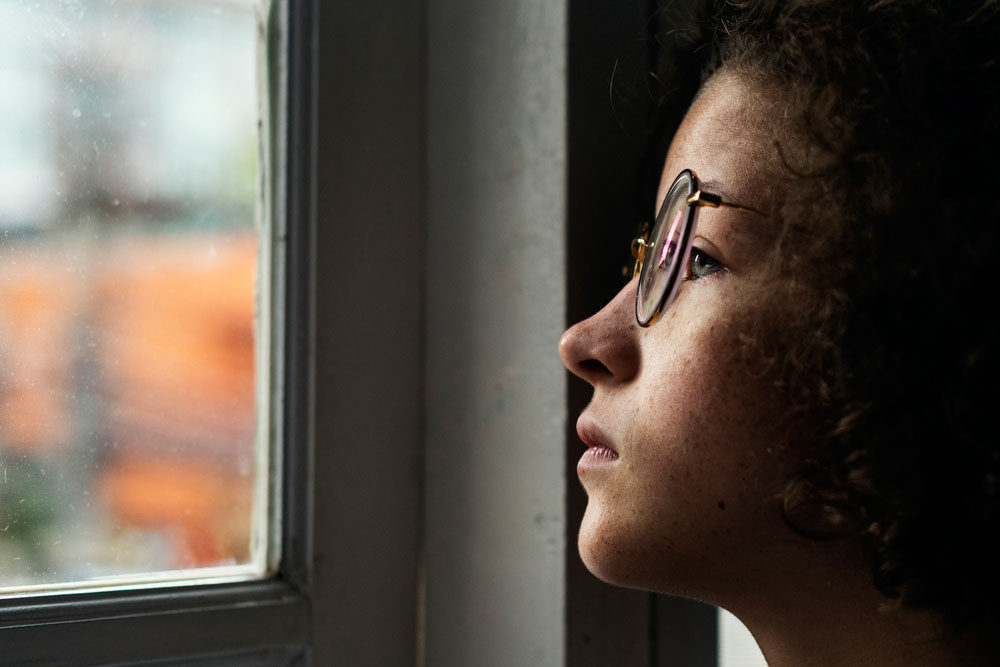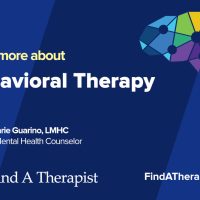Dealing With PTSD
Published on October 2nd, 2017
Updated on January 3rd, 2024

Living with Post-traumatic stress disorder (PTSD) is challenging. When someone suffers from PTSD their sense of security and safety is fragile, which makes each day a struggle. It is possible to recover from PTSD, but recovery can be a long process that requires patience and support from friends and family.
PTSD is a mental health disorder that can develop after a person lives through a traumatic event. It is often associated with military and war veterans but does not exclusively affect those with military history. Anyone who has lived through a traumatic event is at risk of developing PTSD.
There are different events that can be traumatic for a person. Not everyone who experienced a traumatic event will suffer from PTSD, but developing the condition after such an event is possible. Common traumatic events that can cause a person to develop PTSD include:
Sponsored by

Choose a therapist to work with and start healing with 20% off from BetterHelp.
Click Here- War or combat
- Physical abuse
- Mental or emotional abuse
- Sexual abuse
- An assault
- An accident
- Being trapped or held hostage
- The sudden death of a loved one
- Witnessing an emotionally distressing event
- Witnessing or being victim to acts of violence or terror
- Witnessing a natural disaster
- Being diagnosed with a serious or life-threatening medical condition
Symptoms of PTSD
Anyone has the potential to develop PTSD. When a person develops PTSD they will show indicative signs for diagnosis.
A person with PTSD may or may not previously have poor stress management skills. Poor stress management skills will put a person at increased risk of developing PTSD after experiencing a traumatic event.
A person with PTSD will show the following symptoms:
- Flashbacks (seeing or feeling sensations of re-living the traumatic event)
- Avoidance of triggers
- Rejecting traumatic events
- Nightmares or night terrors
- Muscle tension or trembling
- Feelings of guilt or shame about the event
- Denial of the situation or events
- Isolation and withdrawal from family and friends
- Panic attacks
- Development of phobias
- Trying to numb feelings or turn off emotions
- Hyperarousal (a constant state of sensitivity that causes irritability and excitability)
- Mood swings
- Insomnia
- Self-medicating with drugs and alcohol
- Difficulty concentrating
Causes and Risk Factors of PTSD
PTSD is triggered by a traumatic event, and traumatic events are subjective. What is considered traumatic to one person may not be considered traumatic to others.
Even though traumatic events are subjective, there are certain situations that put a person at a higher risk of developing PTSD.
Some of these situations include (but is not limited to):
- A near-death experience
- Physical, mental, emotional, or sexual abuse or assault
- Being involved in an accident, such as a car crash or natural disaster
- Witnessing the death, torture, or dismemberment of another person or animal
- Physical injury
- Combat or military history
- Domestic violence, abuse, or assault
Anyone can develop PTSD, but there are risk factors that make some people more susceptible to developing PTSD.
Some questions to consider when assessing risk include:
- For how long was the affected person exposed to trauma? – The longer a person was exposed to the traumatic event, the stronger the risk of developing PTSD.
- How distressing was the event? – The more distress the traumatic event creates for the affected person, the bigger the emotional scar it leaves on them.
- What kind of coping strategies does the affected person utilize? – Poor coping skills or poor stress management skills will reduce the affected person’s ability to cope with the traumatic event.
- Does the affected person suffer from other mental health disorders? – Pre-existing mental health disorders, like depression and anxiety, will affect a person’s chances of developing PTSD.
Treatment of PTSD
Treatment of PTSD can be difficult to go through. In order to properly treat PTSD, the affected person must speak about the traumatic events, which is often hard to do.
If the affected person is able to properly work through and grieve the traumatic events that caused the PTSD, they will be able to reduce their symptoms. They will learn effective coping skills for treatment.
The following are helpful forms of therapy for PTSD:
- Cognitive Behavioral Therapy (CBT): CBT will teach a person coping skills for managing negative thoughts and stress reactions in response to triggers.
- Dialectical Behavioral Therapy (DBT): People with PTSD tend to suppress their emotions, which worsens symptoms. DBT teaches the affected person how to stop suppressing emotions and accept what happened to them.
- Eye Movement Desensitization and Reprocessing (EMDR): PTSD causes significant effects on the brain. EMDR trains the brain to calm sensory system when recalling the traumatic event. This prevents the symptomatic reaction when talking about the trauma experienced.
- Cognitive Processing Therapy (CPT): CPT is a process of teaching the affected person how to challenge and modify unhealthy beliefs about themselves and the world in reaction to their trauma.
- Prolonged Exposure: Prolonged exposure helps the affected person gradually confront traumatic memories and fears. This helps them unlearn avoidance behaviors and confront feared situations with confidence.
Sponsored by

Find an affordable therapist online with 20% off from BetterHelp.
Click Here






Leave A Reply